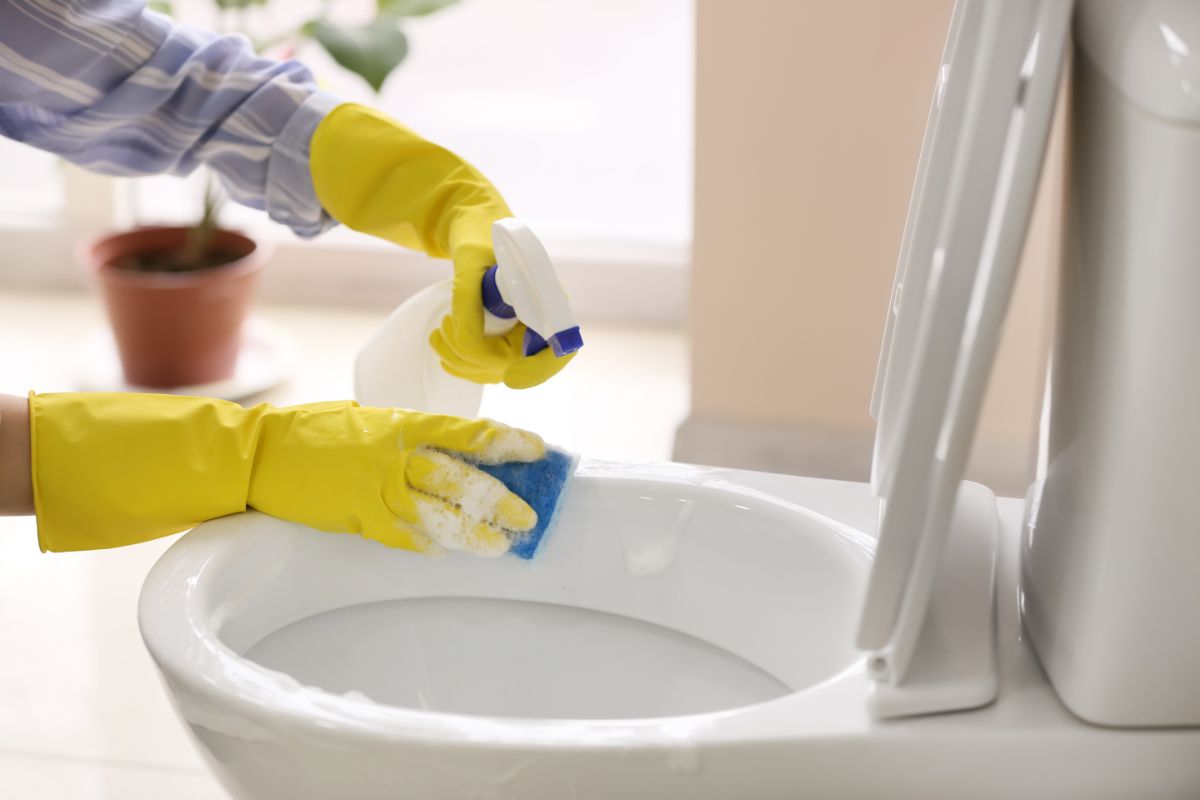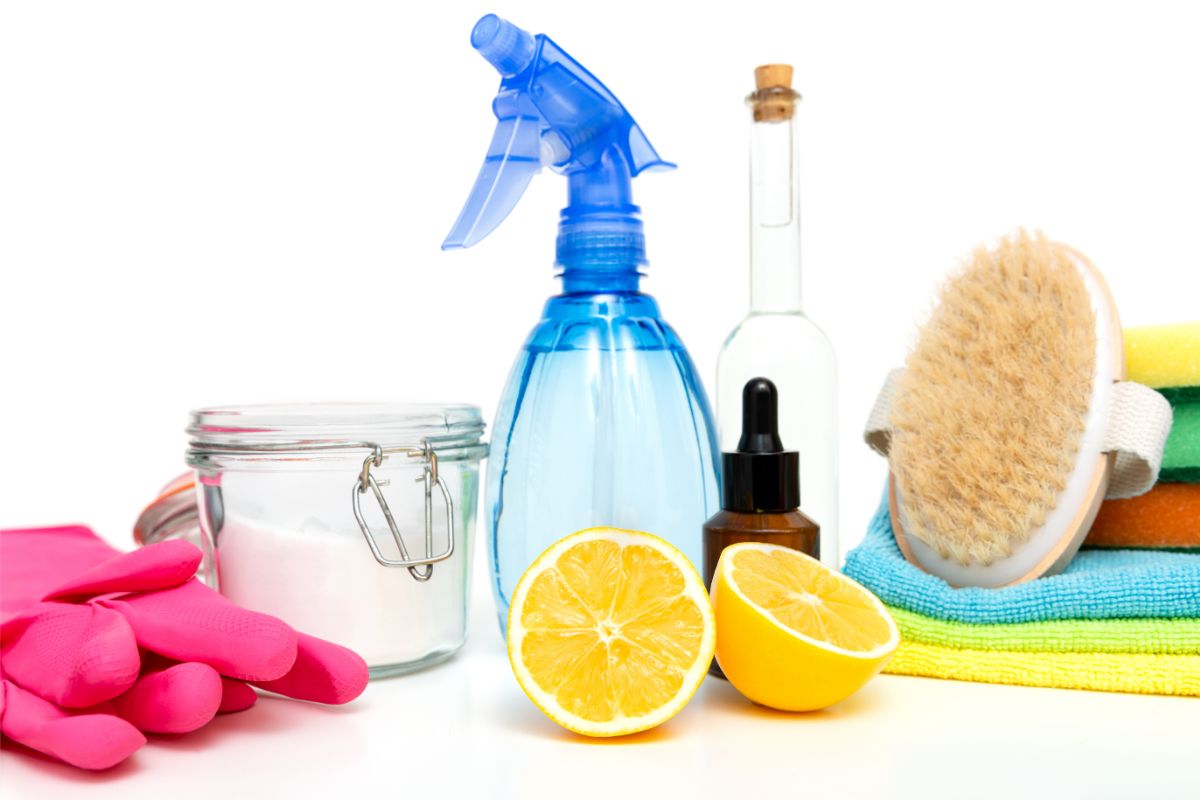Since the 1850s, flush toilets have been a staple in our lives. However, cleaning any toilet can be frustrating, especially if you’re not a fan of using harsh chemicals.
After all, chemicals are corrosive, and cleaning with them can be incredibly uncomfortable.

That’s why we’ve compiled a small but helpful guide to help you find out what you can substitute these toilet cleaners for.
Why You Might Not Like Toilet Cleaners?
Most conventional toilet cleaners contain harsh chemicals such as hydrochloric acid, chlorine, and muriatic acid.
These chemicals can irritate your eyes, skin. If you have asthma, a sensitivity to these chemicals can set off an asthma attack.
If you mix any incompatible cleaners, there is a chance that you can create a chlorine gas cloud in your home. So, it’s no surprise that many people have been switching to non-chemical cleaners over the years.
What Are Safe Toilet Cleaner Substitutes?
To ensure you can clean your toilet safely, we’ve compiled a list of items you can use instead. We recommend you stock up on these items:
- Baking soda
- Borax
- Citrus Juice
- Cornstarch
- Deodorizer
- Hydrogen Peroxide
- Stain Fighter
- White Vinegar
While not all of these products work perfectly on their own, you’ll find that you just need the right combination of ingredients. That’s where we can come in to help.
Recipes For Toilet Cleaners
We can recommend two recipes for cleaning tough stains that will work on your whole toilet.
The first recipe we recommend is ¼ of a cup of baking soda mixed with a cup of white vinegar. Baking soda forms a base, which reacts with the acid in vinegar to create a fizzy cleanser.
All you need to do is mix them, put them in a bowl, and wait a few minutes before scrubbing at your toilet. Then, flush your toilet, and your toilet will look great.
You could also combine ½ a cup of lemon juice with a cup of borax if you have some especially tough stains on your toilet.
If you don’t have lemon juice, you can also use an olive-based soap and combine it with borax or baking soda.
Even dissolved denture tablets can be left in the toilet to attack any stains.
It’s surprising how much you can clean with simple household items.
Can You Use Essential Oils To Clean Your Toilet?
As we mentioned above, it’s surprising how much you can use to clean your toilet. Surprisingly, you can even use Tea tree oil and other essential oils to clean your toilet.
By combining tea tree oil with lemon juice, you can put them on a mineral stain, and it will bind to them.
So, it’s actually easier to wipe the stains away with this combination.
You’ll also notice that essential oils have a lot of deodorizing properties, so you can use eucalyptus, lavender, peppermint, and rosemary to ensure that your bathroom still smells fresh afterward.
When you clean with essential oils, remember to use a glass bowl or a wooden spoon, as they can have poor reactions with metal and plastic.

How To Effectively Clean Your Toilet
If you want to effectively clean your toilet, you should remember to drain all the water from your toilet bowl first.
You can turn off the water valve at the base of your toilet, and then you can flush it to expose any solid surfaces.
When washing your toilet, you should wear rubber gloves. You should also ensure you have a stiff scrubbing brush, a sponge, a spray bottle, some rags, and a toothbrush.
If you don’t want to use a scrubbing brush, you can also use a pumice stone, as it won’t damage the porcelain of your toilet.
When you’re finished, you should dispose of your rags after you use them and clean anything you use before you store it away again.
Even when using rubber gloves, you should wash your hands while still wearing them and then wash your hands again when you remove them.
By doing that, you’ll have clean hands and a clean toilet.
How Can You Help Prevent Stains?
Most stains are caused due to a buildup of mold, mildew, and hard water, so they contain more minerals.
While a lime buildup can leave a green or brown-colored residue, and you may also see rust forming in your bowl.
If so, don’t panic; you can use white vinegar to dissolve these mineral deposits and remove the mildew.
Final Thoughts
We hope you found this guide helpful and that you find it easier to clean your toilet without the challenges of using harsh chemicals.
Many household items can be used to clean your toilet, and it’s surprisingly easy to do.
If you have any questions about plumbing and looking after your bathroom, consider checking out our other articles.
